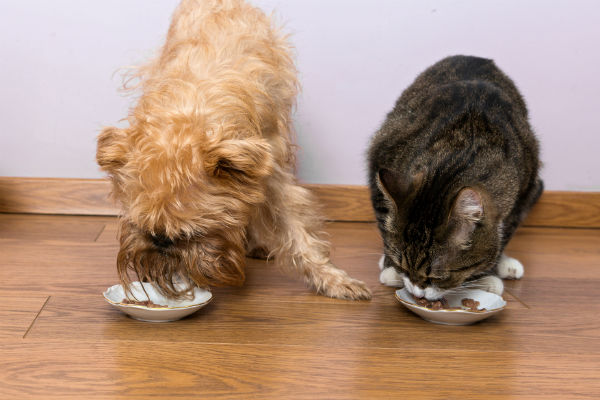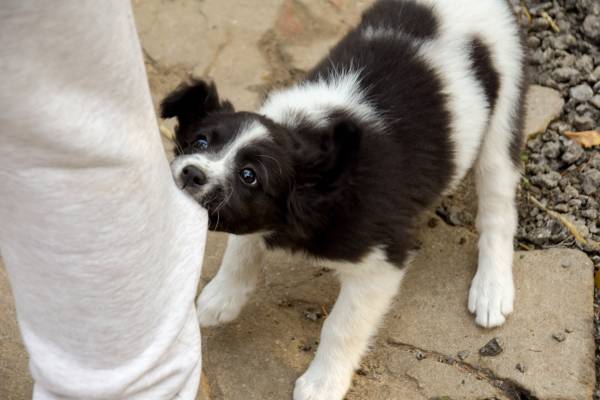Oops! Did your dog get into the trash and dig out a ham bone? Did he wolf it down before you had a chance to get it? It happens! Dogs are always out looking for something to snack on! However, there may be some things you should watch for now the ham bone’s gone.
Connect with a verified veterinarian in minutes. Licensed vets are available 24/7 to answer your questions. No need to worry about your furry family member.
Dogs & Bones
Your fur baby’s ancient ancestor is the wolf. Think of that for a minute and then look at your dog. Can you see the resemblance? Well, it might be challenging to see, especially if you have a small, regal Shih Tzu or a similar dog. Still, your dog’s wild ancestors were once wolves. What’s the point? We’re getting there!
The point is that ancient wolves and other canines have always hunted their prey and eaten it whole. That means bones and all. The same applies today with wolves and wild dogs. They eat every part of the animal, including the bones.
Bones contain many valuable nutrients that wild canines have needed for thousands of years. Our domesticated canine companions haven’t changed too drastically from their wild cousins. They still need about the same nutrients as a wolf.
So, why are we so fussy about giving our dogs bones?
Be Careful Giving Your Dog Bones
The reason comes down to the type of bones we give our dogs. Raw bones are much safer for your dog than cooked bones, no matter what kind of bone you may have.
The problem with cooked bones is that they become dry and brittle. When chewed or crunched by your dog’s teeth, the brittle bones can shatter into thousands of sharp pieces. And this is where the problem starts to become dangerous.

Review symptoms, medications & behavior to keep your pets healthy with a Vet Online in just minutes.
Ask a Vet Live NowHealth Issues Caused by Brittle Bones
There are a number of health issues your dog could suffer from after eating cooked bones. We’d like to take a look at a couple of problems that could be serious.
Perforation of the gastrointestinal tract: this condition is caused by fine, sharp bone fragments. The sharp bone fragments enter the gastrointestinal tract, where they can puncture or perforate any organ. This can lead to internal bleeding, which is a medical emergency.
Intestinal obstruction: this condition can be caused if a large bone is ingested whole. The bone can become stuck in the esophagus, stomach, or intestines. This leads to a blockage, which is another medical emergency.
Can Dogs Eat Ham Bones?
Possibly. The answer depends on whether or not the bone was cooked or not. If the bone was cooked, your dog shouldn’t be allowed to eat it. If the bone was raw, he might enjoy it but be sure to monitor him at all times.
If your dog has swallowed an entire ham bone, then it’s probably a good idea to call the vet now before your dog starts to show symptoms. Your vet will have the advice needed on the next steps required in his care.
Connect with a verified veterinarian in minutes. Licensed vets are available 24/7 to answer your questions. No need to worry about your furry family member.

Julie
Julie is a graduate of the University of North Carolina, Wilmington, where she studied Animal science. Though contrary to the opinion of her parents she was meant to study pharmacy, but she was in love with animals especially cats. Julie currently works in an animal research institute (NGO) in California and loves spending quality time with her little cat. She has the passion for making research about animals, how they survive, their way of life among others and publishes it. Julie is also happily married with two kids.
Review symptoms, medications & behavior to keep your pets healthy with a Vet Online in just minutes.
Ask a Vet Live Now




